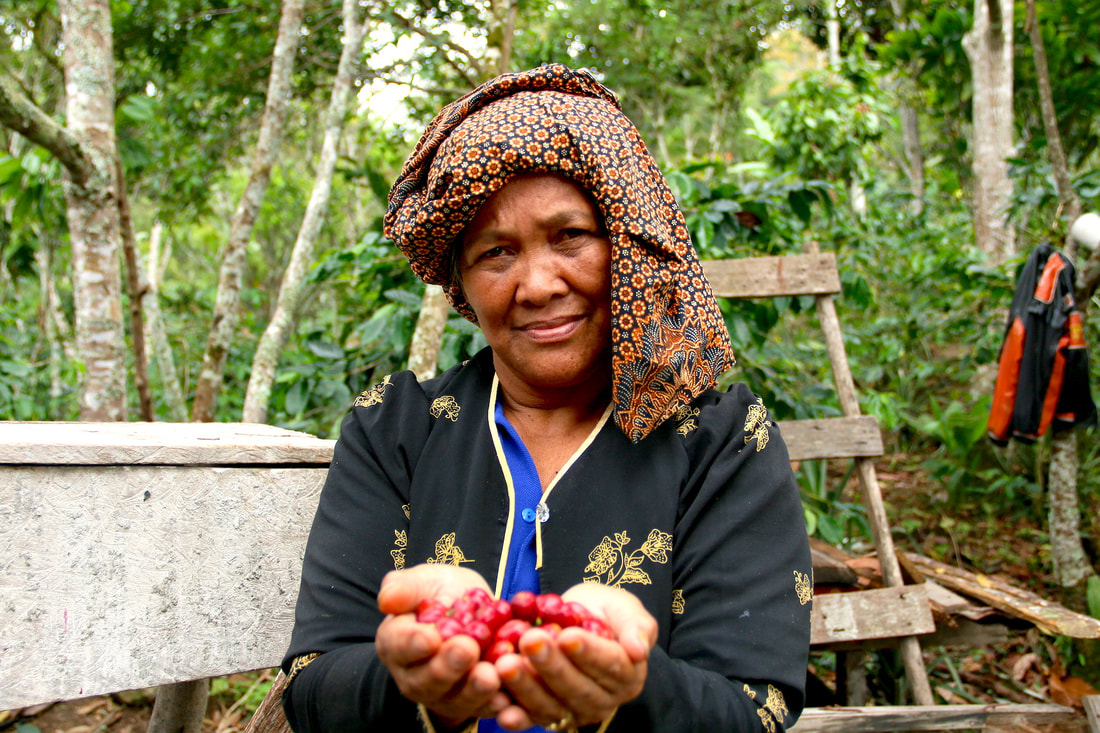|
We believe that approaching a cupping table with an open mind and senses is the correct way to learn, discover, and experience new sensations. We don't assume that origins have pre-assigned profiles like Kenya being associated with berries and Sumatra with chocolate. The coffee flavours can be as diverse as flavours are found in the world. This makes our work exciting because it's a journey to an unknown world of textures, flavours, and aromas that many people have never explored. And therefore, we are fortunate to guide them on this journey through specialty coffee. Umami is described as the fifth flavour, along with sweet, sour, salty and bitter. It is a savoury flavour that can be found in foods such as tomatoes, mushrooms, soy sauce, and aged cheeses, and is attributed to the presence of glutamate in these foods. Glutamate is a neurotransmitter, responsible for sending messages between neurons and the brain. All foods, including coffee, contain some amount of glutamate. Tomatoes, cheese and mushrooms contain high amounts of glutamate. However, in coffee, it is unlikely that this flavour is derived from free glutamates, as there are very few free glutamates present in green coffee. Therefore, it is more likely that the umami flavour that we sometimes find in certain lots is attributed to other compounds and substances present in coffee.
0 Comments
As we prepare to receive a new harvest of Kenyan coffee, we realise that there are several misconceptions associated with Kenyan coffee, let's review the most common ones: 1.- There is a misconception that Kenyan coffees are too acidic and unsuitable for use in espresso or milk-based drinks. However, this is simply not true. The acidity level of a coffee can be controlled by adjusting the roast profile. Although some coffees have a higher natural acidity, this can always be reduced by roasting if necessary.
To be or not to be ... The diversity of possible cup profiles is practically infinite, as coffee is a living product, many times we find flavours, aromas or sensations that we cannot associate with past experiences. And this is particularly true with experimental processed lots. But from a professional and objective point of view, are all coffees with experimental processes good coffees? 1. What is memory?
Memory is the process through which we obtain, store, retain and access information. Human beings are capable of perceiving reality through experiences, which we classify and store. This process allow us to survive, cause if we were not able to access past experiences to decode the new ones, we would be living each day in a constant chaotic state of wonder, terror, happiness or stress. Memory in simple words, simplifies our life and balances our central nervous system. 1.- Origins of fermentation.
Fermentation is older than any ancient civilization that we know of today. Several archaeological excavations have found jars with the remains of wine that are approximately 8,000 years old. After much trial, error and careful observation, almost all civilizations began producing fermented beverages (and foods as well), but mainly wine and beer. It started with the fermentation of water with honey in Asia, then the Egyptians, Babylonians and Romans used grapes to produce wine, the Chinese used rice instead to produce wine and other civilizations produced beer with barley. Chicha was produced in South America, through the fermentation of corn. "Taste is undoubtedly a delicate organ, perfectible and respectable as the eye or the ear" The taste of people has been built with the course of history, and some events have strongly contributed to shape it. Like for example, the arrival in Europe of sugar or spices during the medieval era. Throughout history some flavors appears and others, like bitterness, go out of fashion.
|
Archives
April 2024
Categories
All
|
- What We Do
- Que Hacemos
-
Origins
-
Orígenes
- Education
- Educación
- Contact
- Contacto
- Home Roaster Store
- Tienda del Home Roaster

|
Copyright © 2015-2024 | Kilimanjaro Specialty Coffees España S.L.U. All Rights Reserved.
|





 RSS Feed
RSS Feed